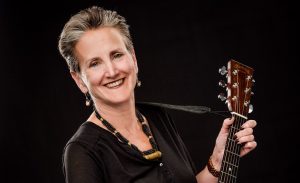As the horrors of the Holocaust were wreaking havoc in Europe, my family was living comfortably in New York. When it was my turn to learn about the Shoah in Jewish Day School, I would ask my grandparents if they knew what was happening to their relatives and so many others overseas during the 1930s and 40s, and if they were able to do anything to help. Those were hard questions to ask, and I never got real clarity about what they knew and how or if the American Jewish community could have done more.
It is very clear now, as I am living comfortably in Canada with my young family, that there are horrible atrocities taking place in Europe and the Middle East, and we—as a Jewish community—could and should be taking action to help save lives.
In recent days, I have seen social media light up with postings from Canadians horrified by recent events and asking, “What can we do?”
We need to stop asking what we can do and start taking action. Now. Today.
But it is hard to know what and how to solve such a large global crisis. So I thought it would be helpful to suggest some ways that we could get together as a community and leverage our relationships and resources in Toronto and Canada to mitigate this horror.
Here are three ways the Jewish community can work together to help save refugee lives.
1. Urge the Canadian government to re-settle more refugees at a faster rate. This is the most pressing need at the moment. There are many private donors willing to sponsor refugee families, but a shortage of approved refugees to sponsor. The government has imposed too many bureaucratic hurdles and processing times can take up to five years. This is unacceptable in the face of the scale of the crisis in Syria. What we need is the political will and resources to quickly process more people, and send resources overseas as needed.
The Jewish lobby—primarily through the Centre for Israel and Jewish Affairs —is very powerful. They often have Stephen Harper’s ear, and could certainly influence Minister of Citizenship and Immigration Chris Alexander. They need to urge for these changes to happen quickly so that we can increase our resettlement targets and accelerate the arrival of as many refugees as possible. The longer it takes, the more lives that are lost. As the federal election campaign ramps up, candidates should also be committing to a fast-track emergency program – as Canada did in response to refugee crises in Uganda, South East Asia and Kosovo in previous decades.
2. Donate to support refugee resettlement and humanitarian aid. Substantial funding is needed to sponsor refugees and resettle them in Canada. Many individuals and groups—including those from Congregation Darchei Noam who was the first synagogue to announce support—are sponsoring refugees. More still needs to be done.
For instance, Federation could allocate resources and synagogues can also be fundraising during HHD appeals for this cause. Funds could be allocated to a number of excellent local organizations with expertise and capacity in this area. For instance, Lifeline Syria is working to help settle 1,000 families in the GTA. Jewish Immigration Aid Services works to resettle immigrants by providing a range of services.
In addition, contributions for humanitarian work are greatly needed. The UN Refugee Agency (UNHCR), for example, has been helping coordinate the response of the international community, and has been providing food, shelter and medical support for thousands awaiting their fate in Europe and elsewhere.
3. Engage your community in this effort: The Toronto Board of Rabbis has already signed a statement in support of Canada taking in more refugees. This was an excellent first step. They should continue to focus on this pressing issue and use their authority and sway to galvanize communities to move this effort forward.
As we approach the Yamim Noraim (the Days of Awe) we will gather together in synagogues across Canada and the world to reflect on who were are and our purpose in the world. We must use the opportunity to brainstorm and collectively commit to take action.
I, for one, will not be able to utter the phrase “who by water” during the powerful unetaneh tokef without thinking about those refugees who have drowned this year fleeing from hell and death.
We need to stop asking, “What can we do?” and start doing it. Lots of individuals are reaching out and asking what can be done, and now it is up to the community overall to work together to make it happen. The Jewish community in Europe, including several chief rabbis, have written and spoken about ways to help mitigate this humanitarian crisis. We must do the same in Canada. We are a powerful and well-connected people, and we should be marshalling our resources to make the world a better place.









